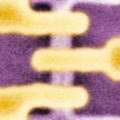
A compound found in green tea appears to reduce the inflammatory responses associated with autoimmune diseases, say researchers from the Medical College of Georgia in the journalAutoimmunity.
The researchers have been working with animals modeling primary Sjogren’s syndrome (also known as dry mouth), which damages the glands that produce tears and saliva. While around 30 percent of elderly Americans suffer from dry mouth, only around 5 percent of elderly people in China do. Dry mouth is also seen in patients undergoing radiation treatment.
Hsu explained that the animals treated with green tea had significantly lower levels of autoantibodies, protein “weapons” produced when the immune system attacks itself. “The salivary gland cells treated with EGCG [a component of green tea] had much fewer signs of cell death caused by TNF-alpha [a group of proteins involved in inflammation],” said Hsu. “We don’t yet know exactly how EGCG makes that happen. That will require further study. In some ways, this study gives us more questions than answers.”
Hsu speculates that the EGCG in green tea can turn on the body’s defense system against TNF-alpha. Further study could help determine green tea’s protective role in other autoimmune diseases, including lupus, psoriasis, scleroderma and rheumatoid arthritis.
Related articles:
New Theory On Green Tea’s Medicinal Properties
How Green Tea Prevents Cancer








Comments are closed.